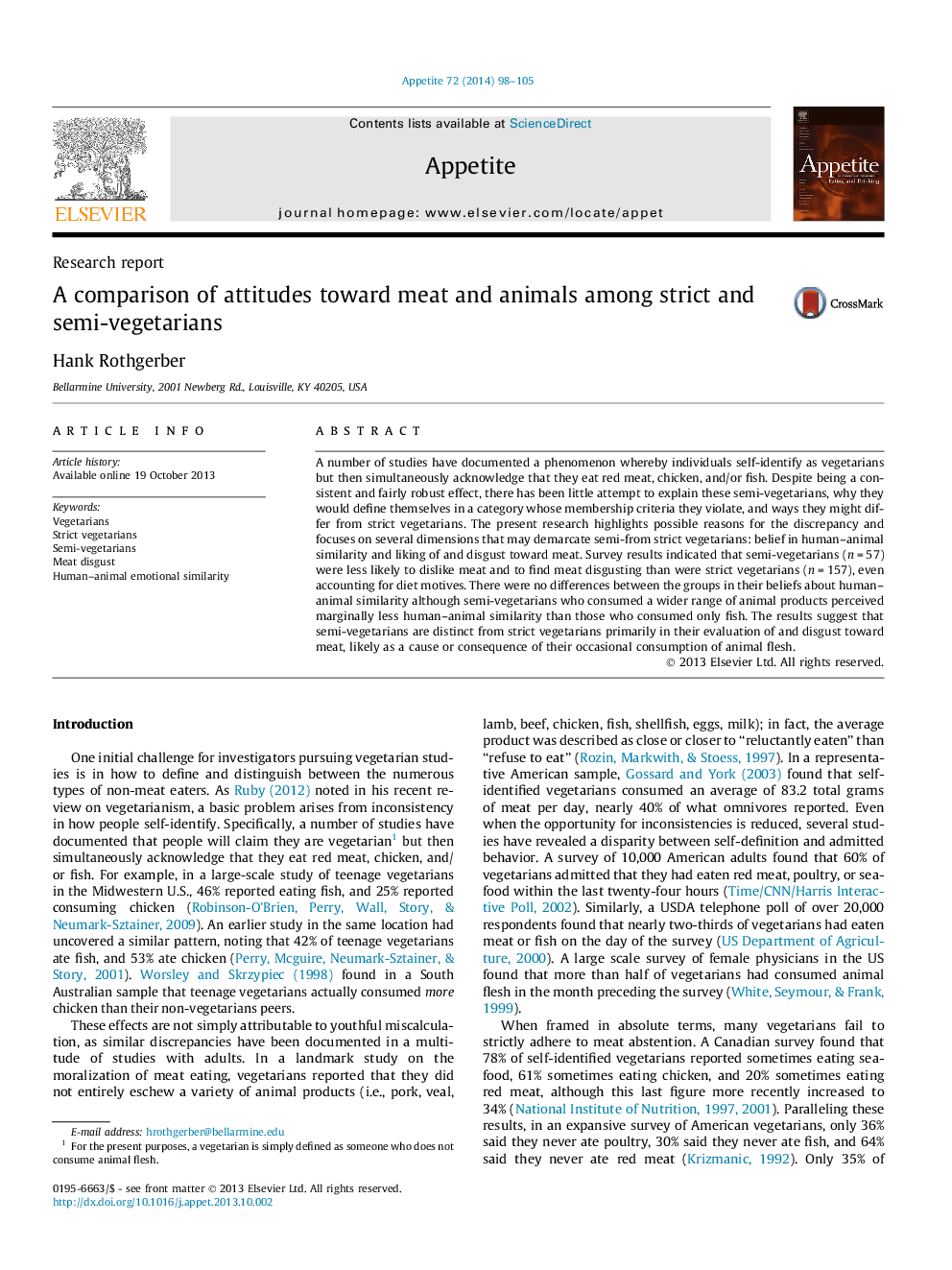| Article ID | Journal | Published Year | Pages | File Type |
|---|---|---|---|---|
| 7310617 | Appetite | 2014 | 8 Pages |
Abstract
A number of studies have documented a phenomenon whereby individuals self-identify as vegetarians but then simultaneously acknowledge that they eat red meat, chicken, and/or fish. Despite being a consistent and fairly robust effect, there has been little attempt to explain these semi-vegetarians, why they would define themselves in a category whose membership criteria they violate, and ways they might differ from strict vegetarians. The present research highlights possible reasons for the discrepancy and focuses on several dimensions that may demarcate semi-from strict vegetarians: belief in human-animal similarity and liking of and disgust toward meat. Survey results indicated that semi-vegetarians (n = 57) were less likely to dislike meat and to find meat disgusting than were strict vegetarians (n = 157), even accounting for diet motives. There were no differences between the groups in their beliefs about human-animal similarity although semi-vegetarians who consumed a wider range of animal products perceived marginally less human-animal similarity than those who consumed only fish. The results suggest that semi-vegetarians are distinct from strict vegetarians primarily in their evaluation of and disgust toward meat, likely as a cause or consequence of their occasional consumption of animal flesh.
Keywords
Related Topics
Life Sciences
Agricultural and Biological Sciences
Food Science
Authors
Hank Rothgerber,
